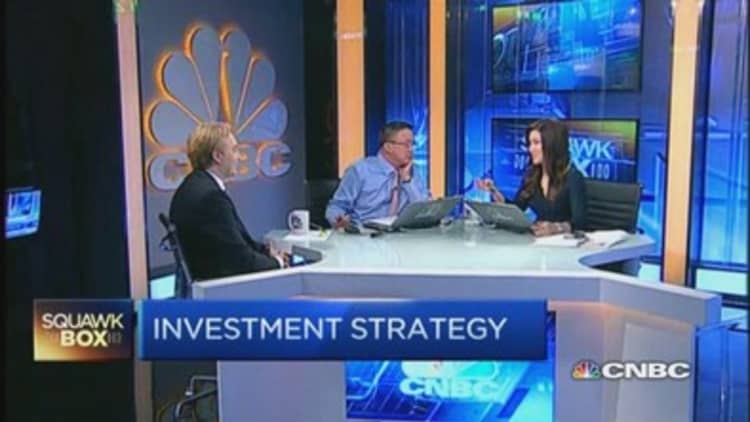Emerging market currencies were hit hard on Tuesday, while the euro fell to a 12-year low versus the U.S. dollar, on rising expectations for a U.S. interest rate rise this year.
The South African rand fell as much as 1.5 percent to a 13-year low at around 12.2700 per dollar, while the Turkish lira traded within sight of last Friday's record low. The Brazilian real fell over one percent to its lowest level in over a decade. It was last trading at about 3.1547 to the dollar.
Meanwhile, Europe's single currency fell as low as $1.0731, its lowest level in 12 years, fueling talk of a move closer to parity against the greenback.
A perception that a U.S. rate hike could come sooner rather than later has been building since the release of Friday's stronger-than-expected U.S. non-farm payrolls report.
Read MoreU.S. stocks open sharply lower
Analysts said that concerns about fiscal issues were compounding weakness in some currencies. In the case of the euro, the massive quantitative easing (QE) program just unleashed by the European Central Bank weighed.
"It's a case of broad-based dollar strength amid increased expectations of a U.S. rate hike this year," Lee Hardman, currency economist at Bank of Tokyo-Mitsubishi UFJ, told CNBC.
"So currencies where countries have higher deficits or fiscal issues are under increased selling pressure, such as the South Africa rand, the Turkish lira and the Brazilian real. The euro is weakening on its own accord because of QE."

The volatility in currency markets comes almost two years after talk of unwinding U.S. monetary stimulus sent global markets reeling, with some emerging market currencies bearing the brunt of the sell-off.
"Markets continue to price in the assumption that next week's Federal Reserve meeting could see a re-phrasing of its statement," said Jeremy Stretch, head of currency strategy at CIBC in London.
"Comments from some Fed officials also suggest were are getting closer to a rate hike, while there are a myriad reasons to be short other currencies against the dollar."
Read MoreTurkey's dangerous game risks financial chaos
In Turkey, for instance, political pressure on the central bank to take action to boost growth has fueled fears about the bank's independence, undermining the lira. Turkey's currency has shed more than 10 percent of its value against the dollar so far this year.
"Emerging market (EM) currencies are off across the board, as markets focus back on those stronger U.S. numbers from last week, prospects for early Fed tightening, and underlying problems in EM," Timothy Ash, head of EM (ex-Africa) research at Standard Bank, wrote in a note.
"In this environment countries don't need to give investors any excuse to sell - especially still higher rolling credits like Turkey."


